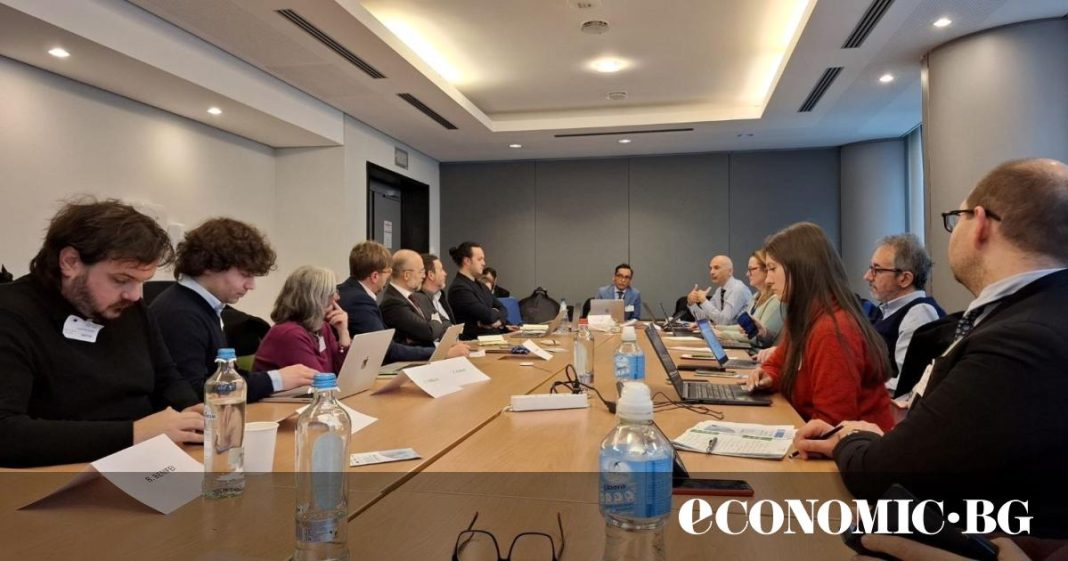Education is crucial and a priority in creating AI literacy, said Ana Oliveira of the Lusofona University in Portugal during the discussion „AI Literacy in the Places of Good Health and Well-Being“, which took place in the European Parliament.
The event, hosted by the Italian news agency ANSA and the Utrecht University in the Netherlands, is a part of the research activities under the SOLARIS project.
“Brand Media Bulgaria”, publisher of the economic news website Economic.bg, is a part of the 12 members under the SOLARIS project and the sole representor of Bulgaria. Economic.bg is a media partner of the project.
AI is no longer just a tool, it actively shapes our perceptions, choices and behaviors on a daily basis”, Oliveira said.
According to her, artificial intelligence affects the way people interact with the world, since it is “algorithms driven by artificial intelligence, decide what we see, filtering information”.
According to her, the main “victims” are young people, because they are the ones who most actively use technology and “they will shape the future of society”. And while some youngsters see the greatest convenience in filtered content, others recognize the potential negatives of such algorithms.
During her presentation, the professor presented her brief study from the 2016-2021 period, when people were just starting to talk about artificial intelligence, deepfake, fake news and disinformation.
Then it became clear that although the technology existed, it was not used,” said Oliveira.
She gave an example of schools where teachers had not integrated smart algorithms into the learning process, and students were also not inclined to use them for anything other than entertainment and pleasure. Yet, Oliveira reached a disturbing discovery.
Teaching critical thinking and skills with regards to the consumption and dissemination of information didn’t appear to be a priority, often it was just a choice made by the teacher”, Oliveira said.
Izidor Mlakar of the University of Maribor in Slovenia shared the results of an experiment related to the skills of Europeans in recognizing and analyzing AI-generated content.
The study currently includes results only from the UK, but data from Italy and Slovenia is also being compiled, which, according to Mlakar, will not differ from data from the Island.
In the study, participants were presented with six videos on different topics – two real, two high-quality deepfakes (i.e. their content sounded plausible, but was artificially generated) and two low-quality deepfakes (i.e. the expressed points of view were the opposite of what a person would generally say).
For example, some of the videos used the image of the Swedish activist Greta Thunberg, who in one video talks about the terrible consequences of climate change (a high-quality deepfake), and in another – about how they are exaggerated (a low-quality deepfake).
While watching the videos, respondents had to identify and indicate why the selected video was credible, whether it matched their personal political views, and whether they would share/spread it.
The results are quite disturbing – only 15% of the videos were correctly identified”, Mlakar said.
Only a third of respondents were able to identify high-quality deepfake videos. Low-quality ones were recognized by half of the participants.
According to the results, 33% of participants indicated that they would share “credible” deepfake videos, and another 30% – even those whose content was of low quality.
Mlakar expressed the opinion that AI literacy should indeed be promoted in schools, but approaches outside of them should also be considered.
A large part of people are no longer in schools – we need alternative methods to help citizens live in this world,” Mlakar summarized.
About SOLARIS
The SOLARIS research project, funded by Horizon Europe, aims to address the challenges posed by generative AI technologies by fostering international cooperation and developing frameworks for AI governance, democratic resilience, and security.
This project is funded by the European Union. Views and opinions expressed are however those of the author(s) only and do not necessarily reflect those of the European Union or European Research Executive Agency (REA). Neither the European Union nor the granting authority can be held responsible for them.
Източник: Economic.bg


